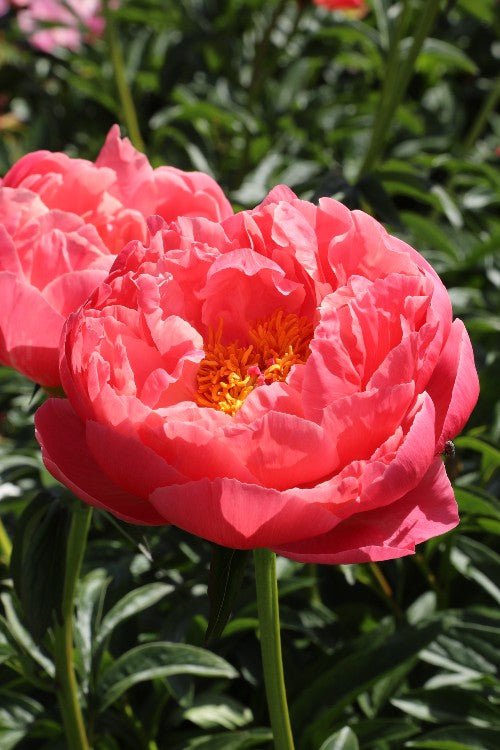
Coral Charm
2498
$24.98
Unit price perAbout Coral Charm
Peony Coral Charm is a beautiful and vibrant addition to any garden. This stunning peony variety boasts large, coral-peach and pink blooms that are sure to turn heads. What's unique about Coral Charm, is that it changes color over time from pink-coral to a creamy white.
- Large, coral-peach and pink blooms
- A stunning and vibrant addition to any garden
- Long-lasting and hardy
- Highly fragrant and attracts butterflies
- Changes color
- Excellent cut flower
How to care for Coral Charm
- Simply choose a sunny spot in your garden with well-drained soil.
- Plant the peony with the eyes (buds) facing upward and about 2 inches below the soil surface.
- Water well and mulch around the base to keep the soil moist.
- Fertilize once a month during the growing season.
- Deadhead spent blooms to encourage more blooms.
- Divide the plant every few years to maintain its vigor.
FAQs

